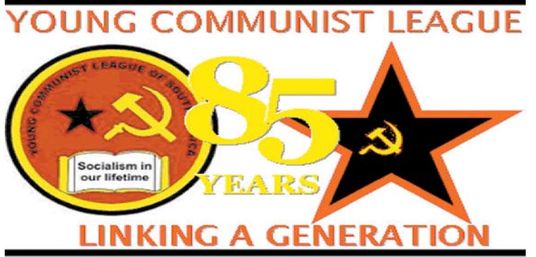
11 November 2010
We are perturbed and disappointed that the Afri-forum youth has the temerity to believe that a racist poster purporting to express the views of SASCO is real and part of our policy. The poster is a hoax and does not represent the views of our organization at all. None of our structures made that poster. It is only those that want to de-campaign SASCO by creating false posters in our name that would have the time to produce such absurdities in our name. These things occur consistently in white campuses and usually produced by white racist students who want to portray SASCO as racist in order to mobilize anti-SASCO sentiment among students.
This occurs so often that we do not have the time to refute every hoax that is produced by racists in our name. We do not have proof that the so-called poster has ACTUALLY not been produced by Afri-forum members in order to later cry foul against our organization and present us as racists and xenophobes. We are convinced that there are forces that seek to tarnish the good name of our organization.
We are not an organization only for South Africans, our structures have a lot of foreign nationals in leading positions including in our National Executive Committee and within our officials. We do not treat our members as South Africans and others as foreign nationals. Everybody is one. We have a lot of African, coloured, Indian and white comrades in our structures, it is therefore also untrue that we are a racist organization. We have also always made it clear that comrade Julius Malema has nothing to do with our organization except from the fact that he is President of a fraternal structure. We even said “[w]hen we deal with our structures the name Julius Malema does not even form part of our vocabulary”.
If Afri-Forum youth intended for us to collectively deal with the issue of the hoax-poster, they would have engaged with us directly. Being the publicity seekers they are, they spoke to the media instead. We will not bother ourselves to respond to Afri-forum youth, they will receive a response from the media they spoke to in the first instance. We call on the leadership of Afri-forum youth to stop grandstanding and playing to the gallery. The problems that face the youth in our society are far-reaching and need more than anger, egos and cheap publicity stunts to resolve such as those from Afri-forum youth.
Revolutionary songs are banned and cannot be sung because of Afri-forum youth and we have not raised a word in protest simply because we sought to ensure that we unite the country. Is Afri-forum not satisfied with the damage it does to the unity and cohesion of our society? We find it baffling that it is always Africans that are mobilized to be moderate and understanding while our new democrats whose parents benefited from apartheid are the ones that must tell us what is and what is not. If Afri-forum wants to take us to the Human Rights Commission for a hoax-poster, let them do so, they have time. We are busy trying to resolve the effects of apartheid in the education system.
For details Contact:
Mbulelo Mandlana (President)
071 879 3408
Or
Lazola Ndamase (Secretary General)
082 679 8718


